
Sam Gandy, MD, PhD, director of the Center for Cognitive Health at the Icahn School of Medicine at Mount Sinai, discussed his presentation on detecting toxic amyloid-β oligomers and their role in AD pathology at AAIC 2025.

Isabella Ciccone, Content Associate, NeurologyLive®, has been with the team since September 2022. Follow her on X @iciccone7 or email her at [email protected]

Sam Gandy, MD, PhD, director of the Center for Cognitive Health at the Icahn School of Medicine at Mount Sinai, discussed his presentation on detecting toxic amyloid-β oligomers and their role in AD pathology at AAIC 2025.

Catch up on any of the neurology news headlines you may have missed over the course of July 2025, compiled all into 1 place by the NeurologyLive® team.

New findings highlight the potential of sCD83 as a prognostic biomarker in NMOSD and MOGAD, supporting its role as both a therapeutic target and a marker of treatment response in these autoimmune diseases.

Here's some of what is coming soon to NeurologyLive® this week.

Take 5 minutes to catch up on NeurologyLive®'s highlights from the week ending August 8, 2025.

The corporate vice president of medical information and research at Theranica discussed long-term findings presented at AHS 2025 covering the company’s Nerivio remote electrical neuromodulation device for patients with migraine. [WATCH TIME: 5 minutes]

Two experts from Cerevance discussed data from the company’s posters recently presented at AAIC 2025, which highlighted potential therapeutic targets for Alzheimer disease. [WATCH TIME: 5 minutes]

At AAIC 2025, the head of AD, MS and Immunology Development Units at Biogen discussed ongoing research efforts targeting tau pathology in AD, specifically the company's investigational candidate BIIB080. [WATCH TIME: 6 minutes]

Gabrielle Macaron, MD, assistant professor of neuroscience at Université de Montréal, discussed the nuanced clinical decision-making involved in initiating a DMT for patients newly diagnosed with MS.

The advisory board member of the Parkinson's Foundation shared personal insights on how love, present-moment awareness, and hope shaped her approach to living with the Parkinson disease. [WATCH TIME: 6 minutes]

At CMSC 2025, Cassandra Moore, MPH, CPH, associate vice president of strategy and innovation at the National MS Society, discussed the impact of health and wellness coaching in patients with multiple sclerosis.
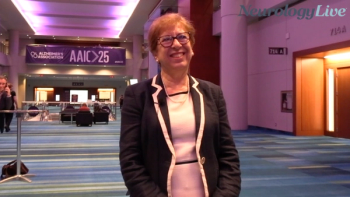
The professor of molecular neurology at the University of Cambridge highlighted recent research on tau protein aggregation in Alzheimer disease and other related tauopathies. [WATCH TIME: 6 minutes]

Here's some of what is coming soon to NeurologyLive® this week.

The Emeritus Professor of Cognitive Neurology at VU University Medical Center talked about findings presented at AAIC 2025 from the phase 3 BROADWAY trial of obicetrapib in Alzheimer disease. [WATCH TIME: 3 minutes]

Take 5 minutes to catch up on NeurologyLive®'s highlights from the week ending August 1, 2025.

The chief development officer at Spinogenix shared initial results from the first cohort of the company’s phase 2 trial assessing SPG302 in Alzheimer disease presented at AAIC 2025. [WATCH TIME: 6 minutes]
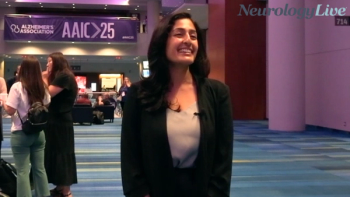
The senior data scientist at Linus Health discussed how acoustic and speech-based metrics can be used to capture subtle cognitive signals during neuropsychological assessments. [WATCH TIME: 6 minutes]
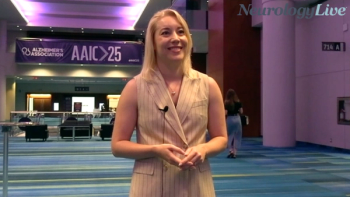
The chief scientific officer at Neurogen Biomarking outlined a novel home-based diagnostic model that can accelerate detection of early AD through biomarker profiling. [WATCH TIME: 5 minutes]

The associate professor in the Department of Psychiatry at McGill University discussed the strengths and limitations of PET and blood biomarkers in identifying early Alzheimer disease.

A new analysis revealed structural brain differences among patients with breast cancer who experienced chemotherapy-associated cognitive impairment following anthracycline-taxane treatment.
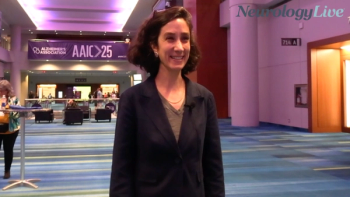
The associate professor of neurology at Icahn School of Medicine at Mount Sinai discussed the clinical and scientific advantages of blood-based biomarkers over imaging for Alzheimer disease. [WATCH TIME: 5 minutes]
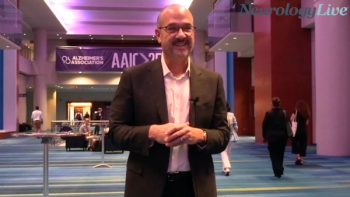
At AAIC 2025, the chief medical officer at CND Life Sciences discussed recent progress in detecting neurodegenerative diseases earlier using tools like the Syn-One Test. [WATCH TIME: 3 minutes]

Although the FDA-approved therapies lecanemab and donanemab both slow progression in early Alzheimer disease, a new study presented at AAIC 2025 highlighted differences in their safety profiles.

In a new study presented at AAIC 2025, findings showed that walking significantly slowed cognitive decline in APOE ε4 carriers, especially among Black and White women.

A new study presented at AAIC 2025 suggested that combination therapy with cardiovascular medications was associated with slower cognitive decline in older adults.

Take 5 minutes to catch up on NeurologyLive®'s highlights from the week ending July 25, 2025.
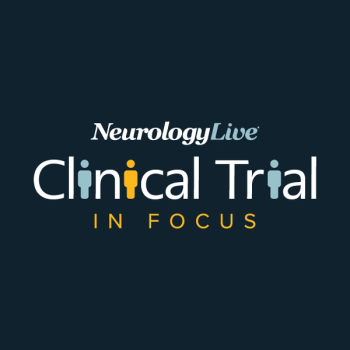
The AHEAD 3-45 Study is currently assessing lecanemab asymptomatic stage of Alzheimer disease to assess whether the therapy can slow biomarker changes or cognitive decline at the earliest phases.
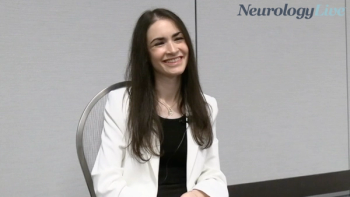
The postdoctoral neuropsychology fellow at North Shore University Hospital talked about recognizing and aligning subjective cognitive complaints with objective assessments in patients with migraine during the interictal period. [WATCH TIME: 6 minutes]

Findings from a new study from Mayo Clinic may offer clinicians a straightforward metric lesion resolution to aid them in distinguishing MOGAD from MS in routine clinical practice.

A recent study uncovered existing medications that may lower mortality risk in patients with Parkinson disease, suggesting potential for repurposing in future trials.